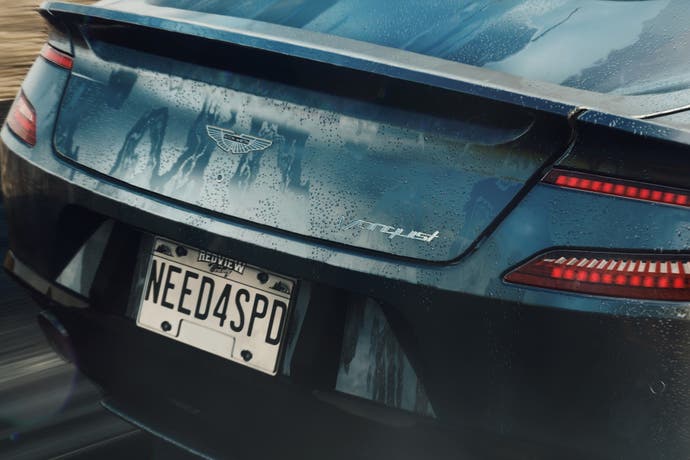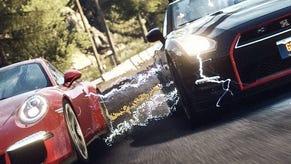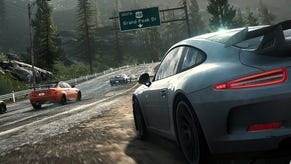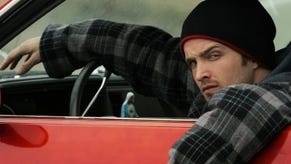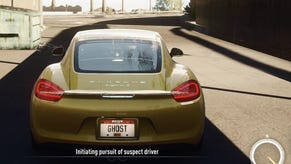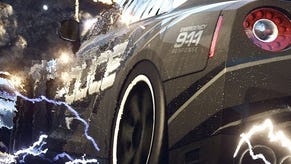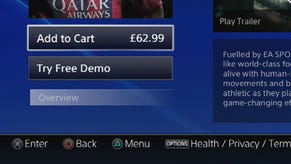Craig Sullivan's Need for Speed
The former Criterion creative director on the challenge of Rivals and whether the series may move from annual releases.
"If I was to sit here and say it's been easy I would not be telling the truth. It's hard." Craig Sullivan, creative director on Need for Speed Rivals, has earned his point. This time last year he was taking a well-deserved break, having just shipped Most Wanted with Criterion. And now he's at the heart of a studio still in its infancy and about to ship its first game - and it's one that's coming to five different platforms, all developed by Gothenburg-based Ghost Games, placing it right at the heart of the next-gen storm.
So yes, it's very likely been hard. "But at the same time," Sullivan says, "we knew what we were signing up for." Ghost Games has, by its own admission, signed up for nothing less than restoring a consistency of quality to the Need for Speed franchise, a consistency that's been missing in recent years and perhaps even throughout its history. Just as Criterion's brace of games, the superb Hot Pursuit and Most Wanted, proved that there's plenty of fun to be had with one of the most successful and prolific names in gaming, so too did 2011's The Run prove that Need for Speed still has the capacity to disappoint.
Sullivan himself wasn't a part of Ghost's original plan, and started out by lending some of the experience he had attained through the development of Most Wanted, Hot Pursuit and back to Burnout Paradise. "I decided that if I was going to do more than just help them out I needed to move out there," he says. "I've always said I've got unfinished business with Need for Speed, and I want to be around it a long time."
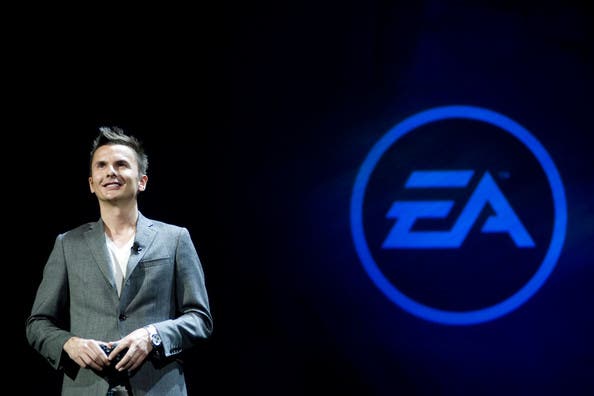
It's not just Sullivan that made the jump and, as a part of the changes that rang through Criterion earlier this year, many of the team in Guildford that had worked on Hot Pursuit and Most Wanted splintered out to form a new studio that would work alongside Ghost. "There were a lot of rumours going around - to me it's just a natural progression of game development," Sullivan says of the downsizing at Criterion. "The studio had just finished Most Wanted, Ghost was a year into a Need for Speed game, we were already helping out and we got to a point this year where Fiona Sperry and Alex Ward [Criterion's studio director and creative director] wanted to do something different, they wanted to explore something else and you don't need 100 people to go and start a new seed of an idea.
"So there were a few guys they wanted to work with them on that, and a few that chose to as well - so I think it's a group of 20 now. The people that were left, they weren't left - they were already helping Ghost ship Need for Speed Rivals. As that carried on, it became clear that the next game to come out of Criterion wouldn't be a Need for Speed game, and the guys that were still at Criterion, they were more than just helping out - they were now the core team, so it made sense for us to expand Ghost to have a team that spans two studios. And there's a load of talent in both and a load of experience in both."
There's a sense of continuation, then, in Need for Speed: Rivals - with its weighty slides and punchy, combative racing, it picks up right where Most Wanted left off. In the high speed wide-open roads and dense open world it even feels like a compilation of Hot Pursuit and Most Wanted's finest attributes. "I was lucky enough that I got to work with the new talented guys in Gothenburg." says Sullivan, "and then the Criterion guys I shipped Most Wanted with over in the UK, which is now Ghost UK.
"I guess it's a continuation, because 70 people that work on this game today were the same 70 people that worked on Most Wanted and the same 70 people that worked on Hot Pursuit. We've been talking a lot about consistency on Need for Speed - a consistent quality and a consistent feel. With me being creative director on Hot Pursuit, Most Wanted and now Rivals, I would kind of hope that the games had some semblance of consistency - otherwise I'd be schizophrenic. If people say it feels like a Criterion game because of the quality of the feel and the experience, then that's a good thing, and I think that's what Need for Speed needs."
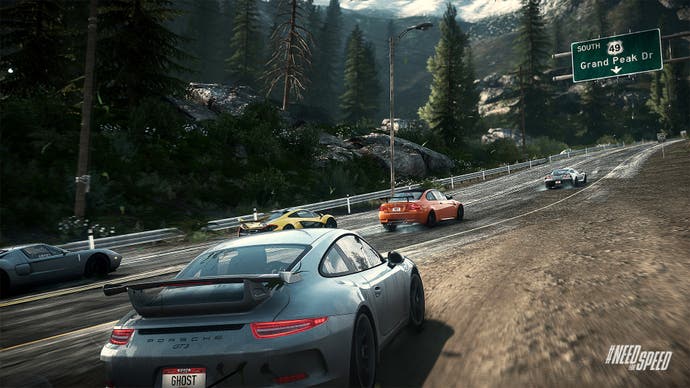
There are some outside influences, too - Jamie Keen, one of the developers responsible for Far Cry 3's rich open world, was one high-profile hire, and his influence can be felt in the hundreds of meaningful distractions within Rival's world. "He comes to it from a completely different angle," says Sullivan. "Running around with a gun versus driving around is quite different, but open world shares the same philosophy with both. We always like to think that everything we work on we learn something."
Need for Speed: Rival's play for innovation is AllDrive, a catch-all term that blurs the line between single-player and multiplayer - you share the open world with other players, and at any point during your career another driver could be sharing the road with you. It's then up to you whether you want to race them, chase them down or run them off the road - or, alternatively, just carrying on pursuing your own single-player goals.
It's a feature that's been cited as the reason for Need for Speed: Rivals not hitting 60fps on next-gen hardware, but what it does achieve is 1080p native on both Xbox One and PlayStation 4 - a feat that's rare amongst the launch titles. For Ghost to achieve that - as well as releases on Xbox 360, PlayStation 3 and PC - is no small feat.
"There are games out at launch that are not on current gen as well," says Sullivan. "Forza's not on 360, DriveClub missed launch and The Crew's only on next-gen and that's not out until next year. For us to do that - it always sounds cheesy when people say this, but I have to say it because it's how I feel - I'm really proud of what the team's achieved. If someone said, how about you start up a studio, and in two year's time you've got to ship a game in a well established franchise where there's already been two really good ones, and you're going to ship on five platforms and two of those don't even exist yet. It's a bit crazy. We knew it was going to be hard and we're really happy with the results - the current-gen, next-gen and PC versions are really well rounded, and we've made the best of all the platforms and we're there day one. We wanted to arrive with a bang, and I think it's turned out well - the innovation and the passion we've brought. And I hope AllDrive really works for people."
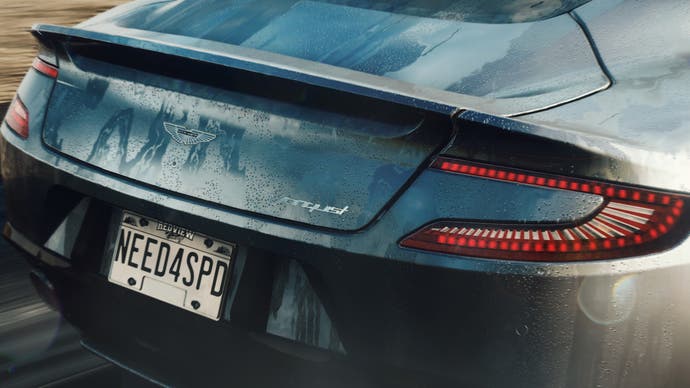
Based on a couple of hours of play (we're looking to get the review to you early next week) Need for Speed: Rivals is a remarkable debut for Ghost, retaining the quality of Criterion's stint on the series. But with Ghost now having sole responsibility for the Need for Speed series, is it a quality it can maintain on the annual rota - or will it be looking to move away from yearly releases?
"The future's interesting going forward for where we go with Need for Speed - there's a lot of scope for what we can do, and I think both studios can play a part in that. We have options. And my first option is to go on holiday. The second is one of many - we own the long-term future of Need for Speed. We're at the start of a new generation, we're going to sit down and look at everything, but we're in control of our own destiny. Being really, really honest, we haven't made a decision about next year yet."
Could moving away from the annual model work, or is there a pressure for Need for Speed to release annually?
"Only if the game is right. A lot of what you've seen over the past few years of Need for Speed, and particularly with Ghost taking over, we've always said a consistency of offering and a consistently of quality, and that's the defining factor of any decision you make. If you can't do a game to quality, there's no point in doing it. Need for Speed had a rough few years and iterations, and now it should mean consistency of quality. What that means for the future, in a world where we can have direct access to people's machines and digital downloads.... There are other games out there doing interesting things, and we're going to sit back and look at what the best option is for Need for Speed and make a decision on that in the coming months."
